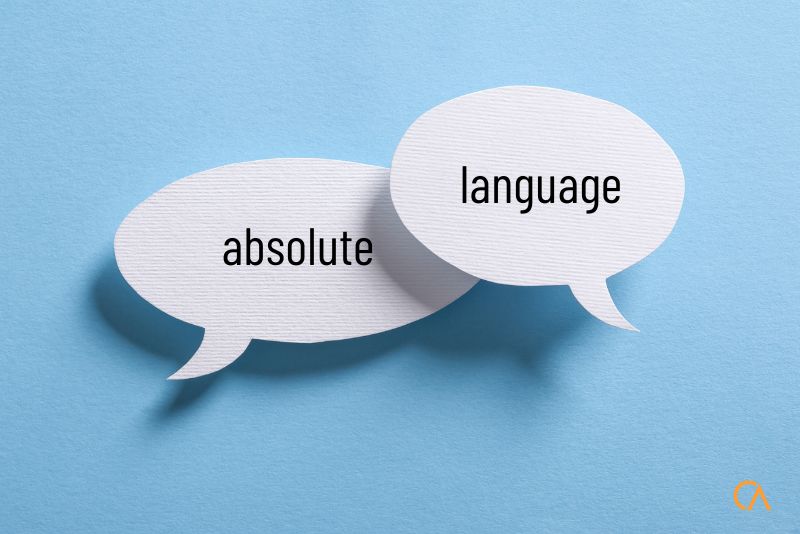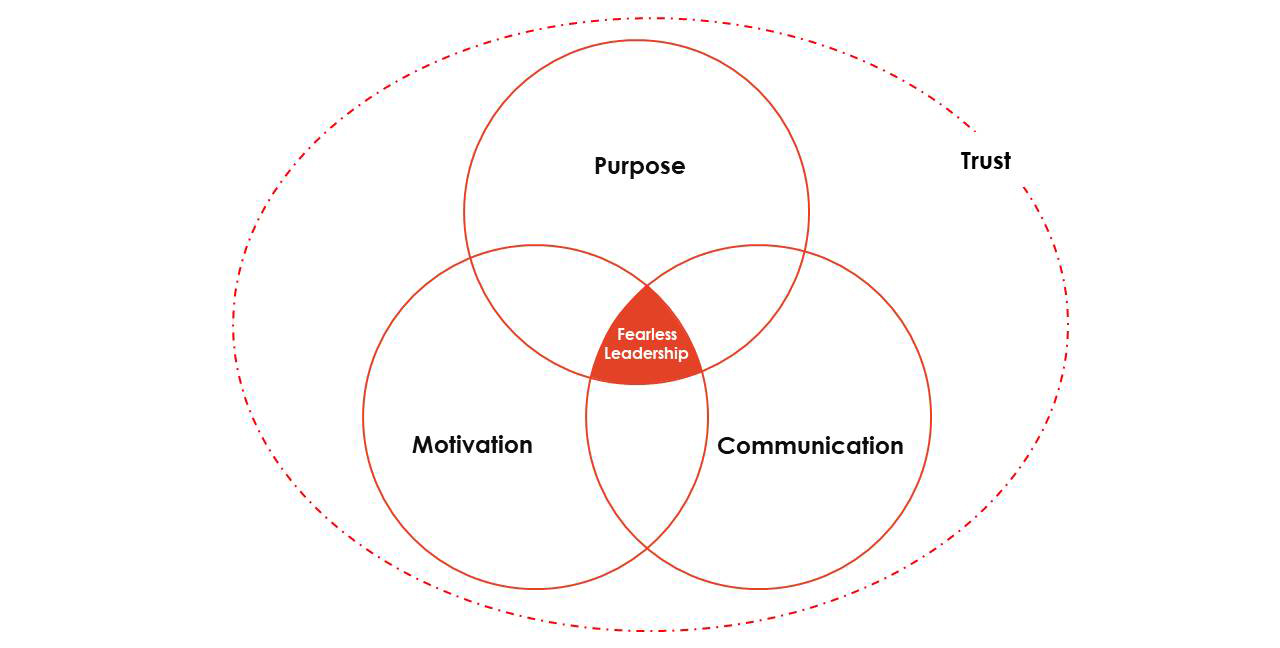
Caution: Absolute language ahead! You should never use absolute terms! (See what I did there??)
Absolutist language includes words like always, never, every, everyone, no one, all, or none. These words can create a sense of certainty but may also limit your effectiveness as a leader.
Absolute language affects your mindset
Absolute language can reveal and reinforce a fixed mindset. When we use absolutes, we create rigid boundaries around what we believe is possible – for ourselves and others
For example you might hear yourself say something like:
“I never get the approach right with this stakeholder.”
Never? Not even once? Statements like this can trap us in unhelpful narratives. A more empowering reframe might be:
“I got the approach wrong this time, and here’s what I learned for next time.”
This shift opens up opportunities for growth and improvement. (And of course, we could even debate whether the approach was “wrong” at all!)
Absolute language impacts your credibility
Using absolutes can also undermine your credibility with others.
“I always listen carefully to my team.”
Always? What about when you’re rushed or distracted? Statements like this can sound exaggerated and may lead others to question your honesty or self-awareness.
A more accurate alternative might be:
“I make a conscious effort to listen carefully to my team most of the time.”
Here’s a personal example: My kids know I hate hearing, “I always empty the dishwasher before school!” Always? Except for yesterday. And this morning. A more accurate statement would be, “Most of the time, I empty the dishwasher.”
Precision builds trust – in teams and in families.
The power of language: The comment that inspired this blog
Recently, my fabulous video coach, Mo MacRae commented on one of my LinkedIn posts about trustworthiness, saying:
“… and always love a good reminder to look in the mirror and self-assess.”
I couldn’t resist pointing out the irony: Always? Mo’s light hearted response was spot on: “Ok, maybe not aaalways. 🤣”
Hmmm – the subtle power of language. By softening absolutes, we acknowledge the exceptions, making our statements more relatable and credible.
Where might absolute language be tripping you up?
Take a moment to reflect on your own use of language. Where are absolutes sneaking into your mindset or conversations? This week, challenge yourself to catch these moments and reframe them. Ask:
- Is this always true?
- What could happen if I softened my language?
Precision and honesty in your words can elevate your influence and leadership impact.
Go Fearlessly – Corrinne
STAY IN THE LOOP




